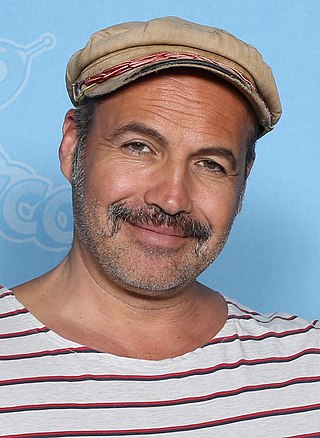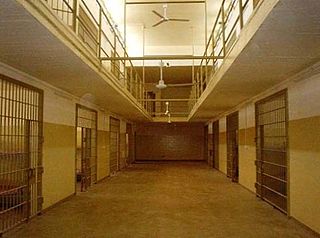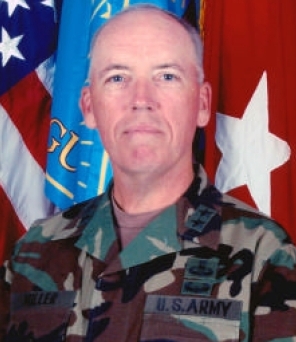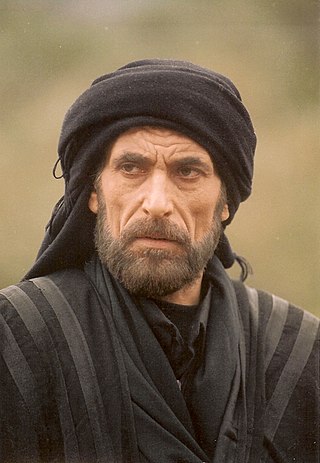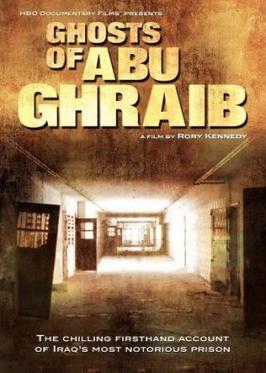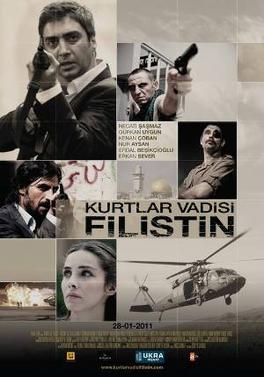Plot
The film opens with a fictional depiction of a real-life incident, the "Hood event". On July 4, 2003, the Turkish soldiers believe they are receiving an ordinary visit from their NATO allies, but a sudden change occurs, and 11 allied Turkish special forces soldiers and 13 civilians are arrested by Colonel Sam William Marshall (Billy Zane), in the northern Iraqi town of Sulaymaniyah. They are forced to wear hoods while in detention, and are released some time later.
A Turkish officer named Suleyman Aslan, who was a member of the special forces troops involved in the Hood event, is unable to bear the shame of what happened, and commits suicide. Before doing so, he writes a letter saying goodbye to his friend, Polat Alemdar (Necati Şaşmaz). Alemdar is a former Turkish intelligence agent who has recently severed links to the government agency for which he worked. Determined to avenge his friend's humiliation, Alemdar travels to Iraq along with several of his colleagues, seeking vengeance on the American commander whose actions led to Aslan's suicide.
At a checkpoint, Alemdar and his team kill three Iraqi Kurdish paramilitary Peshmerga soldiers. They attach explosives to the foundation of a hotel, to which they demand Colonel Sam William Marshall, who was responsible for the hooding incident, come. When Marshall arrives, Polat wants him to put a sack over his head and to publicly leave the hotel with him, allowing journalists to take photos, taking the same insult he committed to Polat's dead friend. The group threatens to blow up the hotel unless Marshall and some of his men let themselves be led out of the hotel while hooded. Marshall refuses and brings in a group of Iraqi children as human shields. Alemdar gives in and leaves.
Marshall raids an Arab wedding on the pretext of hunting "terrorists". When the usual celebratory gunfire starts, one soldier states: "Now they are shooting, now they are terrorists"; they attack a wedding party, where a small child named Ali sticks a branch up the barrel of one of the soldiers' guns. At first, the soldier just hushes the boy away; the second time, he opens fire and afterwards looks astonished as he sees the little child dead. The rest of the soldiers panic and open fire on the wedding guests, beat up the bride, shoot the groom, the guests and children. The survivors are captured and forced into an airtight container truck and sent to Abu Ghraib prison.
En route to Abu Ghraib, an American soldier complains that the prisoners might be suffocating in the truck. One of Marshall's men then fires on the truck, spraying the detainees with bullets. "See, now they won't suffocate to death", he says. When the soldier threatens to report the incident, he is promptly shot. In Abu Ghraib, a group of American soldiers, among them the sole female Westerner in the film (a clear reference to Lynndie England and the Abu Ghraib torture scandal), is making naked human pyramids from those arrested in the wedding, aided by an Arab interpreter. The prisoners are washed with high pressure nozzles in what appears to be cattle stalls.
In a later scene, the execution of a Western journalist by Iraqi rebels is about to take place, but the sheikh Abdurrahman Halis Karkuki, who is esteemed by the rebels, prevents it, and offers the journalist the opportunity to kill the rebel who was about to kill him. The rebel does not resist, but the journalist declines the offer. Thereafter, the bride who survived the earlier massacre, Leyla, wants revenge by becoming a suicide bomber, but is talked out of it by the Sheikh. Leyla hurries to a market to stop her brother-in-law Abu Ali, the father of the child killed at the wedding, from blowing himself up in the place where Col. Marshall is having a meeting, but she arrives too late. Alemdar and his men, who are there to assassinate Marshall, are led to safety by Leyla.
Alemdar and his team then attempt to kill Marshall again by rigging a bomb in a piano (which once belonged to Saddam Hussein) that is being delivered to Marshall as a gift. The bomb explodes prematurely, and Marshall survives. Alemdar and Leyla then go to a mosque, to meet the sheikh. Marshall tracks them down, however, and a big firefight ensues. The entire village and mosque are destroyed by heavy gunfire. Together they manage to kill Marshall, but Leyla is also killed by Marshall.


